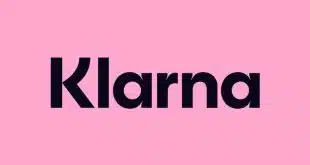LML Payment Systems Inc., which is pressing two patent-infringement lawsuits that could have broad implications for banks and processors that handle e-checks on the automated clearing house network, says more settlements could follow the one it reached last week with RBS Citizens Bank N.A. Patrick H. Gaines, LML's chief executive, says talks are under way with at least some of the 23 remaining defendants across the two suits. “Hopefully we'll announce [more settlements],” he says. “It's impossible to tell when they will occur.' But Gaines also warns that LML, a processor based in Vancouver, British Columbia whose LML Patent Corp. holds five U.S. patents related to ACH processing, could file more suits. “It's possible, yes, though I can't comment on the specifics of our strategy,” says Gaines. “We always are looking [out for] improper use of our technology.” Both cases so far concern one LML patent in particular, RE40220, which relates to ACH processing for a wide range of consumer transactions. As a result of last week's settlement, the first to result from either suit so far, RBS Citizens Bank will pay LML $1,150,000 for a so-called fully paid up license for processes that cover accounts-receivable check conversions (ARC in the nomenclature used by NACHA, the organization that regulates the ACH), Internet transactions (WEB), point-of-purchase conversions (POP), telephone-based transactions (TEL), and conversions merchants perform in bulk in back offices (BOC). The payment covers the life of the patent. Other terms were not disclosed. Both large and small banks, as well as PayPal Inc., have been targeted by LML's infringement suits over RE40220. In November, 2008, the company sued PayPal and 17 banks, including RBS Citizens as well as JPMorgan Chase & Co. and Citigroup Inc. It followed that suit with a second one in June last year against half a dozen banks in Texas. Gaines, who has vowed to aggressively enforce LML's patents (Digital Transactions News, Dec. 2, 2008), says jury selection in the first case is set for March of next year. The company earned $894,000 in license fees for use of its patents in the six months through Sept. 30, up from $841,000 in the year-ago period. But if it succeeds with either jury verdicts or settlements, it could stand to earn a sizable toll on key consumer check-conversion and e-check transactions flowing through the ACH network. That rankles some observers who argue that LML is trying to profit from processes invented much earlier by the banking industry. “This is the biggest threat to the core of what banking is of anything I've seen so far,” says Steve Mott, principal of BetterBuyDesign, a Stamford, Conn.-based consultancy. “[Banks] ought to stand up and say, 'This is our business, we invented it.” But Gaines counters that LML's patents are for original processes. “Prior art is a question of fact,” he says. “If there's prior art, bring it forward. We'll be happy to look at it.” LML has a history of suing to protect its patents. In 2006, it settled a case against First Data Corp., Electronic Clearing House Inc. (now part of Intuit Inc.), and Nova Information Systems Inc. (now known as Elavon). The settlement required the companies to pay licensing fees to LML for POP processing and involved cross-licensing of patents between LML and First Data. Four of LML's patents (Nos. 5484988, 6164528, 6283366, 6354491) cover various processes related to POP conversion. A fifth patent, 6547129, which the U.S. Patent and Trademark Office granted in April 2003, was similarly limited. But when the patent was reissued five years later as RE40222, the original list of claims ballooned from four to 104, including claims that appear to apply to ARC, WEB, and TEL. Language in other of the new claims, including references to making and transmitting check images, could be interpreted to apply to BOC. LML also owns Beanstream Internet Commerce Inc., a Canadian e-commerce processor, as well as LML Payments Systems Corp., a U.S. unit that performs electronic check processing.
Check Also
Klarna Clocks Growth As It Looks to Banking Services
Klarna AB released numbers early Thursday that indicate the payments company’s processing breadth is growing …






